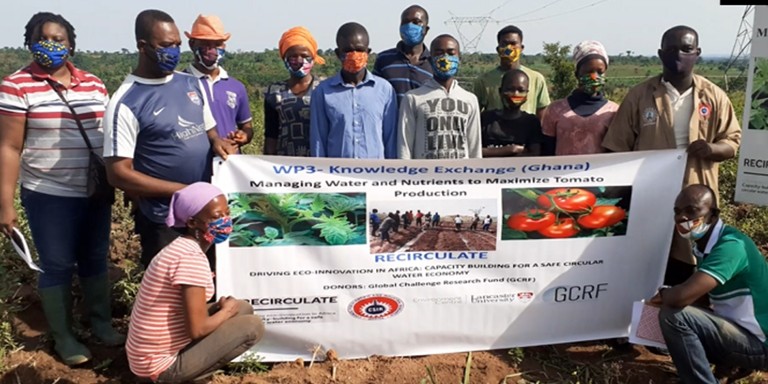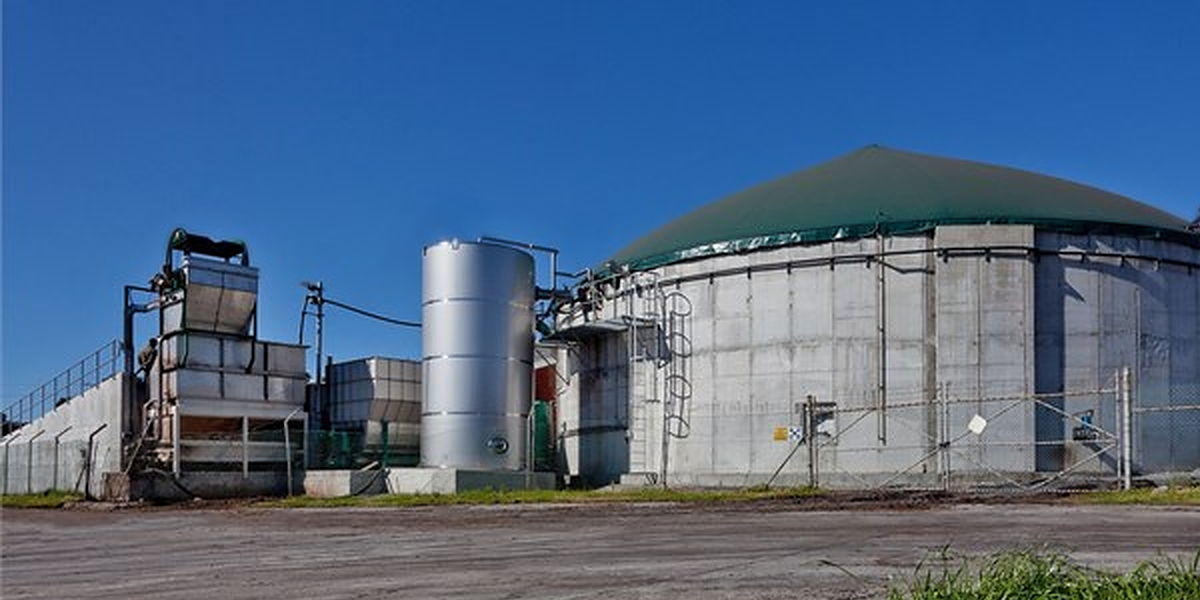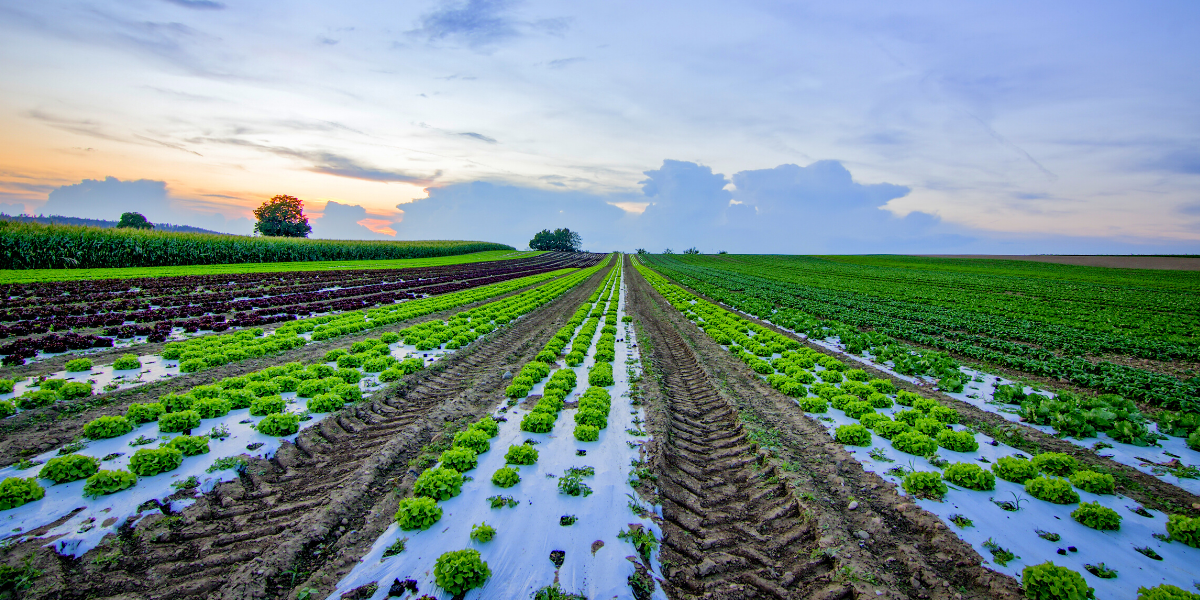
Working with local communities for wider adoption of agricultural technologies in rural Africa
There is no doubt that having access to sufficient nutritious food remains an urgent priority for many millions of people across Africa. The 2020 Global Report on Food Crises (GRFC 2020), published by the UN Food and Agriculture Organisation in August 2020, highlights the scale of the challenge. GRFC2020 highlighted that 27 million people in East Africa and more than 30 million people in Southern Africa were “acutely food insecure”. West Africa has not escaped this crisis: the FAO report describes more than 12 million people in 15 countries as acutely food insecure, including around 5 million in northern Nigeria.
While Ghana has escaped the worst of these crises, more than half of Ghana’s 6.8 million poor live in rural areas and most rely on agriculture for their livelihoods. To achieve the inter-linked Sustainable Development Goals (SDGs) of ending poverty (SDG 1), ending hunger (SDG 2) and promoting health and well-being (SDG 3) we need to ensure that poor farmers have access to scale-appropriate and eco-friendly technologies. Many researchers and scientists have proposed new technologies to improve productivity of farmers and other stakeholders. However, these well-intentioned innovations have often come to nothing. That raises an urgent question: “why are promising techniques not adopted?”
I have no doubt that there are many reasons for this failure, but in my experience one important reason is simply the lack of communication between researchers and farmers. It’s clear that others within the GCRF-funded RECIRCULATE project see the same issue. That’s evident for example from the experience of our sister institute, CSIR Industrial Research Institute, and the lively discussions within RECIRCULATE’s PARTICIPATE forum. Poor communication is itself a highly complex problem. Many Sub-Saharan Africa smallholder farmers often have poor roads and communications infrastructure, and lack access to information because of poor extension contacts, limited cooperative membership, and illiteracy. Those large-scale infrastructure limitations are beyond anything that researchers can hope to solve. But, we can look at ourselves and our attitudes to communication.
It sometimes seems to me that many researchers still think that it is too difficult or time-consuming to co-design and co-evaluate technologies with end users. So let me put these two question to you.
- Isn’t improving the welfare of stakeholders’, including farmers’, welfare, a vital outcome of our research?
- Isn’t effective adoption of our technologies essential for us to improve welfare- to actually change lives?
What do you think? If you agree that the answers to those questions are both “yes”, then isn’t the onus on us, as researchers, to ensure that stakeholder (including farmers) welfare can adopt new technologies?
Within Ghana’s Council for Scientific and Industrial Research (CSIR), the Crops Research Institute (CRI), has long believed that the way to enhance the welfare of farmers is to create awareness, build “ownership” and encourage adoption of the technologies that develop from our research. In our experience, this can be done only by adapting technology to the farmer’s reality, and by developing the technology in the farmer’s field with close and continuous consultation. Their “ownership” of the technology is key to adoption.
Within RECIRCULATE’s “Water for Food Production” research, CRI has the mandate to deliver sustainable water and nutrient management for rice and tomato production. Rice and tomato are important food security crops for Ghana, with current production deficits resulting in high levels of imports. The country needs to increase domestic production despite limiting resources. Our RECIRCULATE research focuses on alternate wetting and drying (AWD) and partial-root zone drying (PRD), which are novel water- saving agricultural technologies. We are building on our previous experience to disseminate and promote these new technologies to stakeholders.
The project is employing the stakeholder-participatory approach where each research activity is co-designed and co-implemented with relevant stakeholders, key among them being farmers. The stakeholder-participatory approach brings together different mechanisms to achieve effective and efficient knowledge exchange. Training workshops and open days at CSIR-CRI are introducing the technology to farmers, extension officers, irrigation management staff, policy actors and other stakeholders. Open days promote community engagement as an important part of effective agricultural extension. They serve as platforms to disseminate innovative agricultural technologies to farmers and agricultural extension staff.
Farmers, extension officers, irrigation management staff, policy actors and other stakeholders have been trained on AWD and PRD irrigation technologies through participatory establishment of community demonstration plots. We used demonstration plots to create awareness among farmers about modern technologies but also motivate them to apply these in their farming practices. In addition, the demonstration plots also served as training facilities.
The demonstration plots were established using Innovation Platforms in the communities. A Community Innovation Platform is a network of actors including farmers, agro-input dealers, machinery operators, financial institutions, processors, non-governmental organizations and extension agents. The Community Innovation Platform members are involved in the set-up of the demonstration on our novel irrigation technologies as well as different nutrient sources including digestate. CSIR-CRI uses the “Training of trainers” approach to build capacity of extension workers, farmers and any interested agriculture stakeholders on the IP. Farmers and other stakeholders were taken through installation and operation of the fixed furrow irrigation system and AWD.
So that’s how CSIR-CRI is approaching working “with in and for” our communities of stakeholders. What do you think? A good topic for another lively debate through PARTICIPATE? Of course, perhaps you are already asking the obvious follow-up question- “Great, but what do the stakeholders make of it all”? If so, I agree, that really is the key question, and it’s exactly what I’ll look at in the second part of this blog.
 |
Dr Stephen Yeboah (Agroecology/Agronomy) is a Research Scientist of CSIR-Crops Research Institute, Ghana. He has expertise in cropping and farming systems research, integrated nutrient management and conservation agriculture. Stephen is a key researcher staff on the RECIRCULATE project focusing on nutrient and water management in rice and tomato production. He obtained Doctor of Philosophy degree in Agroecology at Gansu Agricultural University, China. Stephen’s research interests is to improve understanding of soil-plant-water relationships. You may contact me by email and follow me on Google Scholar. |
 |
Ing. Dr Patricia Oteng-Darko is a Research Scientist (Soil and Water Engineer) of CSIR-Crops Research Institute, Ghana. Her expertise spans efficient resource in crop production, crop modelling and simulation, irrigation and water management in agriculture and aeroponics and hydroponics systems. Patricia is a researcher staff on the RECIRCULATE project focusing on irrigation management in rice and tomato production. You may contact me by email and follow me on Researchgate. |
All articles in The FLOW are published under a Creative Commons — Attribution/No derivatives license, for details please read the RECIRCULATE re-publishing guidelines.




